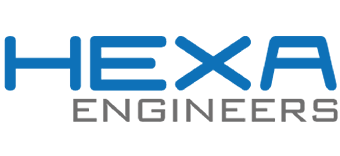The impact of Blockchain and IoT on logistics tracking
In all areas of business, protecting the brand and guaranteeing consumers’ security is fundamental. In some business sectors, it is critical for the company’s sustainability.
When dealing with high value assets, such as works of art or luxury products, there is a great deal at stake. If the products you manufacture, sell or handle are of a high individual value, having a full and completely trustworthy tracking of them throughout the supply chain becomes critical. It is essential to know, not just their movements, but also to guarantee that nothing has been able to alter their value or to identify situations related to potential counterfeiting or piracy.
By the same token, in other sectors, such as the clinical, pharmaceutical, food or chemical sectors, there are extremely stringent regulations regarding handling and supply that also require knowing, guaranteeing and being able to prove the conditions that any goods are kept in throughout the supply chain. Additionally, there are some products where customers establish certain quality specifications that cannot be met if transit is not carried out under pre-established conditions. Visibility of what happens in manufacturing and logistics processes therefore becomes significant in order to satisfy both the needs and expectations of customers and compliance with the applicable legislation.
Knowing the chain of custody of goods is no longer enough, in other words, knowing where and when a specific good has been situated. Now it is also imperative to know the conditions that exist and any event related to them in all of their transits.
Of course, information systems have long been providing solutions in this area and the tracking of production and logistics processes has always been one of the fundamental drivers in digitalisation strategies. This has led to a plethora of initiatives for the integration of applications on an internal level for each organisation as well as among all those linked to the supply chain as a whole.
Although production processes require data to be incorporated and in real time, it has been more accessible through production control systems, such as SCADA, MES, etc. in the logistics field. Due to the distributed nature of it and the inherent difficulties for the asset transit processes, the level of digitalisation has been significantly reduced and having this information has largely involved manual data entry processes, with the resulting risk of error, higher cost and reduction in efficiency and lack of reliability of the data provided.
The emergence of new digital enablers marks a significant turning point in the possibilities of tracking in the field of logistics, providing specific information in real time for any business sector about the transit processes of goods and assets.
With technologies linked to the #IoT, it is possible to connect to people, processes, data and goods through smart sensors and devices, making the automated incorporation of data possible at any time and place. This therefore gives unprecedented control over the processes and events of the supply chain. This enables efficiency to be increased, facilitating decision-making in real time, achieving a higher percentage of correct deliveries by being able to take corrective measures immediately. It also guarantees that goods arrive in perfect condition and in accordance with current regulations or the quality specifications established with the customer.
Beyond the more “traditional” logistics functions, such as an automated control of stock, even in transit warehouses, once the goods are received, it will be possible to find out whether it has suffered fluctuations in temperature, humidity, jolting, or any change in its handling that exceeds the quality specifications linked to the product.
But, if in addition to placing the IoT at the service of the supply chain, we incorporate blockchain technology for the storage of key information about the transit of assets, making its subsequent alteration impossible and enabling access to it directly by the customer, authorities or any other agent concerned, we will provide greater reliability, security and efficiency to the management of logistics processes. This will enable us to obtain an unprecedented level of control and visibility throughout the company.

